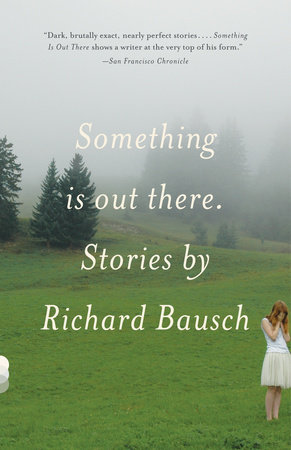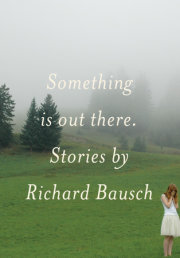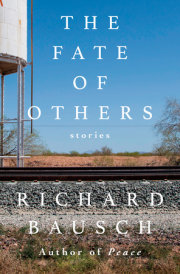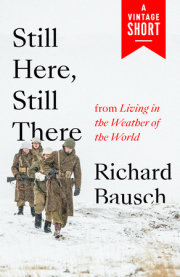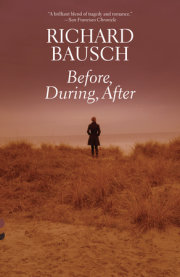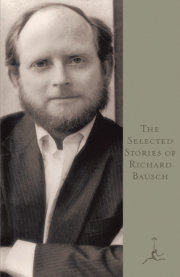IMMIGRATION
The middle of spring in Memphis and it felt like winter. Tonight, setting out the recycling, she got a chill and it took a good ten minutes to get rid of it. She had him hold her, and breathe warm at her neck. They lay in the bed under the ceiling light, because he said it would feel like warmth shining down on them. She thought of the waste of electricity. “Can you turn it off?” she said.
“I’m cold, too.”
“Please?”
“You turn it off.”
She was quiet. In a little while he got up and flicked the switch and then crawled in at her back, shivering. “I’d like to turn the heat on.”
“Stay,” she said.
“I’m dying.”
“We’ll be warm now.”
“It’s too bloody cold.”
“Don’t go, please.”
He lay there shivering, and she reached back to pull him closer. The cold air of the room seemed to be flowing in at his neck, so he pulled the blanket higher, burrowing in, breathing his own exhalation for the warmth. It wasn’t enough. He would never sleep like this, with the chill in his bones, and he wanted to be rested.
They had an appointment early the next day with the Immigration Office to prove that they were a real married couple. They had been married a year now, and his student visa was no longer valid; he would have to get a permanent residency card in order to work. He was from Ireland. Belfast. His parents still lived there. An elderly sullen couple whose exhaustive politeness to her, during her one visit to their house, seemed tinged with a kind of pity, as though they deplored her exposure to them; there was no other way to parse it. And the way they were together made it easy enough to believe. They barely spoke. Michael said they had been that way as long as he could remember, and not to worry about it. But she couldn’t help feeling sorry for having disturbed their stolid existence in the green countryside.
While he finished his degree in history, she had supported him with her teaching job at the Memphis College of Art. She took the job at the end of their first year together, after a period that she considered spendthrift. They had spent a lot of money traveling around, and he was now past thirty, and things were tight. The economy was in the tank, and the administrators at the college were talking about furloughs— the delicate word in the academy for layoffs. He was going to have to find work.
He was ready. There was a need for history teachers at the high school. He had completed his degree, and written his thesis and defended it, and the book was in its tight green binding in the big long shelf of them in the university library. The thesis was about the Kennedy years, especially the problem of Berlin, and the Wall. He knew all about the cold war, and for many nights now in this winter and early spring he had been joking with her about this cold war, the trying to sleep while something is out there their teeth chattered and their muscles shook, and she claimed she liked a cold room and a warm bed, and of course it was nothing of the kind; it was her confounded fear of spending money. In the summer, she would insist that seventy degrees was too cold, and in blazing hot and thickly humid Memphis, she required that the thermostat be set at seventy- five degrees. They argued, back and forth. He made jokes about it in company. She swore that sixty- eight degrees in winter was different than sixty- eight degrees in summer.
He said, “Sure and you get the place down to thirty- two degrees Fahrenheit on any day of the year, summer fall winter spring, and the water’ll freeze.”
“It just feels different,” she said.
“Either way, at thirty- two degrees, the water freezes and we die of exposure.”
Now he waited for her to go to sleep, so he could get up and put the heat on. But she lay there shivering and murmuring about the things they would need in the morning for the meeting with the Immigration people.
He didn’t want to talk about it. And even with the shaking he was beginning to be sleepy.
“The marriage license,” she said. “Did we put that in?”
“Did you? Because I don’t remember seeing it.”
“The marriage license is the most important thing.”
“I’ll look in the morning.”
“Can you check it now?”
“If you want to check it, love, you go right ahead.”
She sighed again but did not move.
He sought to remember if he had seen the marriage license. There was too much to think about. He moved a little, and sighed, and shook.
She said, “Good night.”
“I can’t sleep. This is fucking daft. We might as well be in the Arctic.”
She was silent. One of the things she found a bit taxing about him at times was his ability to concentrate on his own distress in any situation. He could be eloquent about it, spending energy delineating all the facets of whatever trouble had arisen, often enough trouble he had brought upon himself. She had never known a more disorganized man, and his lack of any kind of practical skill had worn her out during the process of gathering all that they would need for the morning’s meeting: birth records and school transcripts, tax forms, proof of themselves as they were. The marriage license. She loved him, loved his humor and his voice and his soft brogue, but she was also exasperated by him.
“I’m worried about the pictures, too,” she said to him now.
“We don’t have enough pictures, do we?”
“You want to get up and take a few more?”
“No. And stop it.”
“I think we should bring stool samples,” he said, sounding serious.
She didn’t answer, but turned, facing him, and put her cupped hands to her mouth and breathed the warmth. “I won’t be able to sleep if I don’t know the marriage license is in there.”
“Did you put it in there?” he said.
“I don’t remember.”
“Good night, Rita. We’ll check it in the morning.”
In the middle of the night, she awoke, sweating, and sat up, worried about the time. He was sprawled on his side, legs out of the blankets. She got up and went into the hall and flicked the light switch. He had turned the heat on in the night— probably while half- asleep. She turned it off and went into the kitchen. All the documents were arrayed on the table, with the two books of photographs: the many images of that busy first year. She looked through them again. Here were the two of them together and apart in many happy poses. The books were labeled WORLD TRAVELERS: him smiling clownishly on a sunny street near the Spanish Steps in Rome; the two of them embracing on the flat dirt lawn of a chateau in the Loire Valley; him seated at a café table outside a small village in Normandy, with bread and cheese and pretty shining bottles of red wine before him, and then her in the same pose, at the same table; both of them lounging and being silly in front of a
pension in Paris, a gloomy- looking ivy wall and narrow windows behind them; and here were several from the rainy afternoon in Belfast at his parents’ cottage with its heavy stone entrance and its low ceilings. And there were the ones from the year before, both of them by the fish market at San Francisco Bay, with Alcatraz brooding behind them in a cowl of drifting fog. And then there were several of them with her parents— who, last year, had divorced after thirty years— and her brothers and sisters in Virginia, everyone smiling into the camera, a sunny cool day in Fredericksburg, and he had said, when she showed it to him, “Ah, here we all are in happier times.”
“What does that mean?” she said. “Are you talking about my mother and dad?”
“I have the thought any time I look at a picture like that, no matter who’s in it.”
“Well, everyone’s here. Including you.”
“Don’t rile yourself, darlin’. It’s a general thought I have every time I look at such a photograph, since I was a little tyke. ‘Here we are in happier times.’ And tell me straight from your heart, isn’t that the truth of it?”
Now she closed the photo books and put them in the folderwith the other papers. She supposed this would be enough. She worried about it all, nevertheless. The forms had been so daunting. And she remembered now that all the travel had been strenuous and had taken a toll on her nerves. In several of the pictures she looked carefree and glad, and she could recall the sense that it was something she put on, a ruse, to hide the stress of worrying about the money and the next flight.
Indeed, he would say that the strain she felt wasn’t the travel but spending the money. And they had spent it, too, all of it— fifteen thousand dollars of an inheritance from his great uncle, who had made a fortune in the coal business and then lost most of it, and then made a lot back selling stocks. He left each of his surviving nephew’s children a single flat payment calculated from an obscure formula he had devised that had to do with time spent in his company. Michael had lived in the old man’s house one summer in Donegal before he started college. He often talked about him as a kind of natural force, a man who could be singularly unpleasant to be around, so strange and unpredictable, even volatile, but in the end hugely interesting: after you had been with him you realized that you hadn’t been slightly bored. And he paid attention— the behest to Michael was accompanied by a note telling him that he should use it to study history. Michael was nearing completion of his degree at the time, and the advice seemed prescient.
Well, and a man who travels the world is in his way also studying the past.
He woke alone in the bed, turned, and looked at the faint outline of the door. He pulled the blanket up, knowing that she would’ve turned off the heat. Lying awake, he went over the arguments for sixty- eight degrees in the winter and seventy- five degrees in the summer. The whole thing was a perfect illustration of the economic anxiety of the lower middle classes. The phrase came to him like a quip he might use, but then he thought of her face, the sweet oval of it, and these little peccadilloes of hers were funny if you didn’t let them annoy you.
He turned over again, wondering at the time and deciding that she must be seeking to reassure herself about all the materials they had gathered for tomorrow. Probably she had already located the marriage license, and probably it had been packed early, among the first things they thought about. How upsetting it was to think that you were going to be subject to the whims of the national government as manifested in the person of a single clerk— somebody working a job, with a desk and a computer and photographs of his family on the desk, and posters and paintings on his office wall. Michael pictured himself and Rita seated across a gray desk, with their lives before them in the envelopes and folders, while this little imagined balding gloomy man combed through everything, making little check marks on a legal pad as he went along. Perhaps he had lapsed into a dream, because her movement in the room startled him. She got into the bed very carefully, and lay with her back to him.
“Did we pack it?” he said.
“I’m sorry, I didn’t mean to wake you.”
“Did you find it?”
“It’s there. You must’ve packed it.”
“Well, if I did I don’t remember it.”
She closed her eyes and tried to drift off. He lay still, as if listening for her. She murmured, “Michael?”
Nothing.
It was a long night. She kept waking up, and she had a consecutive- feeling dream, a senseless narrative that kept unwinding. When light came to the window she gingerly removed herself from the bed, and put her robe on. In the hallway she checked the thermostat. Sixty- five degrees. She looked out the window at the street, with its shade trees and flowers. It was a bright morning, and dew was on the grass, sparkles everywhere, and the shade was dark blue. A beautiful day, cool and breezy, without a cloud in the sky. She put coffee on and sat by the front window taking it all in. She saw the neighbors come out and get in their van and drive away. Another neighbor, a woman she had only waved to now and then, came along the sidewalk with a big white dog on a leash, being pulled by him. She wore overalls over a white T- shirt and looked out of sorts. Rita laid her head on the back of the chair and closed her eyes.
And fell asleep.
He woke to the sound of her cell phone alarm, and said sleepily, “Turn it off, sweetie, please?”
When she gave no answer he said in a pleading and frustrated tone, nearly a whine: “Oh, come onnnn. I’m up. Turn it off.” He opened his eyes, and saw that she wasn’t there. So she was up and getting ready. “Good,” he murmured aloud. And he turned the phone off and lay back down. He would wait until she came to wake him. He, too, fell asleep.
The INS office in Memphis is on Summer Avenue. Summer is a long street. It runs west all the way to Parkway North and the river, and to the east it goes all the way to Lakeland, and beyond. They both knew the street without being able to tell from the number exactly where the office might be. Their appointment was for eight- thirty a.m.
He woke just before eight o’clock. He got out of the bed and went into the bathroom and looked at himself in the mirror. Then he looked at the clock on the wall to his left.
Rita woke to the sound of him moving through the house. They hurried into their clothes, barely speaking, and by eight-sixteen they were in the car, with him driving, speeding toward Highway 240, which was the shortest way to Summer. Neither of them spoke. They didn’t know which way to turn on Summer. He thought she had looked it up, and she thought he had.
“It’s your responsibility,” she told him. “I thought you’d do it.”
“Call them,” he said. “Can you do that?”
“Why didn’t you get up with the alarm?”
“I thought
you were up. You
were up.”
“I had a bad night. I couldn’t sleep. Christ. Sue me.”
“Where were you?”
“I fell asleep in the chair.”
“Call them. We’re almost to the exit.”
She keyed in the number, and got a recording, with choices. She had to scroll through them. He pulled over on the cloverleaf that would take them down to the light at Summer. Right would be west, left would be east.
She keyed angrily— sighing with exasperation and muttering under her breath— through the choices. And finally she was speaking to someone. He looked out at the highway and the parking lot of Garden Ridge Home Store, the drive- in theater screen beyond. The appointment form stated unequivocally that if a petitioner was late, the appointment would be canceled and all forms would become invalid. The entire process of seeking the card would have to be repeated. He tapped the wheel, listening to her.
She said, “We’re at the 240 interchange. The light there.”
“Take a left at the light,” said the voice on the telephone, “And then take the first right and go to the end of the drive. We’re right there.”
“Thank you,” Rita said. She snapped the phone shut. “We’re in luck.”
“I heard.” He was already pulling the car out, but the blare of a truck horn stopped him. He slammed on the brake and she pitched forward. The folders on her lap fell to the floor at her feet.
He watched the truck, a big semi- trailer, go on past, down to the light. He looked back and carefully pulled out. He knew she was displeased with him. She hadn’t reached to retrieve the folders.
“You’re the one that fell asleep in the chair.”
“It’s your permanent residency. You’d think that would make you a little concerned for the details— like where the office is.”
“We’re in luck,” he said. “Remember?”
The sound that came from her was not a word.
“Could you repeat that, please?”
“If you only had one— one— just
one organizational gene.”
“What would I do in that case? I would seek you out dead asleep in a chair in the living room when you’re supposed to be getting ready for this appointment?”
“You just turned over and went back to sleep.”
“I was depending on my lady,” he said.
“Don’t call me that. Your father calls your mother that.”
“You thought it was charming when we were there.”
“I thought it was sweet for
them, since they’re so unhappy and generally miserable with each other and in such obvious pain.”
“Pain?” he said.
“Go,” she told him.
The truck had pulled into the intersection and was also turning left. He idled forward, keeping a good distance behind it. “I don’t know if I want a permanent residency here.”
“Well, turn around then. Let’s go home. You can go back to Ireland.”
He pulled out around the truck and into the gas station there, and turned around, so that the car was facing Summer from the other side.
“What’re you doing?” she said.
“You want to go home. Sure, and I can go home, too. I thought they were one and the same, but I see they’re not.”
“Just please stop this. I didn’t mean it. We’re going to be late.”
“You said, Let’s go home. And what’s this about my mum and dad now?”
“We’ve got five minutes to get there, Michael. Do you want to go through the whole thing again?”
“Maybe I don’t want to go through it now.”
“
You said they’re miserable together.”
“So they’re to be pitied now, and you can’t think of them except as something hostile to your well- being.”
She looked out of the window and didn’t answer. He made the right turn, and then the next right, and followed the drive to the building— a low gray institutional- looking place with aluminum- and- glass doors. She gathered what had fallen to the floor while he waited. Neither of them spoke. He watched her struggle with the papers. Finally she had it together, and they got out of the car. The heat of the morning had begun to bake the asphalt lot, and the air smelled heavily of creosote. She looked over the roof of the car at him, her face drawn and tired, already gleaming with sweat.
“Don’t worry,” he said to her. “We’ll play the fuck’n love card.”
“I didn’t mean anything about your parents.” Her expression was broken; he thought she might begin to cry, but then he reflected that she had brought it on herself with those cruel comments about two people who had taken her into their home and welcomed her to the family. He felt low and mean, but he was still angry, and he walked a couple of paces behind her, looking at the backs of her ankles against the cream white of her shoes and the blue cuffs of her slacks. His wife. He remembered being with her in a little tall- ceilinged room off the Piazza Navona, the two of them staring out at a rainy morning, the beginning of their life together, and she was talking with excitement about the Bernini in the center of the piazza, and he had turned to kiss her, a long sweet kiss, and when it was over she continued, without having lost the thought, a pretty girl still telling, still going on about her thrilling journey in the ancient town. It had charmed him so completely that he almost wept for the joy of it.
Now he opened the door of the ugly, single- floored building— it looked like a converted trailer— and held it, and walked in after her. This was a foyer leading to another glass- and- aluminum door. It had occurred to him that there was something unreasonable about his anger. He could feel himself holding on to it while opening that door for her. He dismissed the idea; he was certain that he was right about this morning. She was the one who had been unreasonable. He thought of his parents, saw his father sulking and seething over a plate of sausages, while the woman he had lived with all those years kept to her side of the table in silence.
There was a guard inside the inner door. They had to empty their pockets into a basket and step through a metal detector. The guard, a heavyset brown man with a permanent frown that showed even as he smiled, looked at their driver’s licenses and then waved them into the room. Chairs were set in rows on one side. Five other people were there— a woman and two toddlers who looked to be twins, and a very young couple, teenagers. Everyone sat quietly, except the toddlers, who kept pulling against their mother, wanting out of her grasp. Another couple walked out of the central door, and the clerk there, a tall blond woman with very red lipstick, said “Mr. and Mrs. O’Keefe.”
So they were on time, and if they had waited another minute, this woman would have called someone else. Rita thought of the tremendous overweening punctiliousness of this agency of the government— a reaction to 9/11, no doubt. The thought went through her as she followed the woman down a narrow hall and into a small office. On the desk was a computer, several pictures of the woman’s children, and a tall stack of folders. Rita set her own folders on the desk.
The woman took their file from the stack and opened it. She used the eraser end of a pencil as friction to riffle through the pages. She asked for their passports and driver’s licenses. Rita also had both birth certificates, and she handed them over.
“Do you have your marriage license?”
“Yes.” She began looking through the folders on her side of the desk. “I’m sure I have it here somewhere.”
The woman waited. Michael looked around the room, and his wife’s little exasperated sigh told him that she wasn’t finding the thing. “Maybe it’s still in the car,” he said.
“I packed it,” said Rita. “I put it right in here.”
“But the folders all fell on the floor when I had to slam on the brakes. Maybe you didn’t get it when you picked it all up.”
“Here,” Rita said, pulling it out of the middle of the stack.
“It got pushed in under some things. We almost had an accident coming here.”
“Oh.” The woman took the license and gazed at it. “You’ve been together . . . a year and two months.”
“We’ve been together longer than that,” Rita said. “We’ve been married a year and two months.”
“You got married here in Tennessee.”
“Yes.”
“Do you have children yet?”
“No,” said Rita. And suddenly a little sob rose up from the back of her throat. She was completely unready for it. She held the next breath back, feeling her throat close. Out of the corner of her eye she could see his face turned to her.
The woman had reached across to hand the license back, and she was frozen for a few awkward seconds, holding it out. Michael reached over and took it from her, and set it on the folder in front of Rita.
“Do you need some time?” the woman asked.
“Excuse me,” Rita said, reaching into her purse and bringing out a handkerchief. She held it to her mouth. “I’m sorry.” It wouldn’t stop. She couldn’t make it stop. She wiped her eyes, closed them tight, and sobbed.
The woman looked at Michael, who could only stare back. Perhaps he shrugged. And then he understood that she was expecting him to do something, to show some concern. He put his hand out and touched Rita’s shaking shoulder. “There,” he said.
“I don’t know what’s happened,” Rita got out. But then it came over her again in a wave, and she sat crying, now at least partly because of the fact itself— that she couldn’t control it, make it stop.
Michael said, “We almost had an accident coming over here.”
“I’ll be back,” the woman said. She rose, looking taller than he had remembered from first seeing her. She went out of the office and closed the door quietly.
He leaned over and said, “I’m sorry. Don’t cry.”
“I said that awful thing about your father and mother.”
“I’ve said worse meself. Don’t do this. Don’t torture yourself.” He was worried about the woman coming back. He searched his mind for something soothing to say, and his mind was blank. Again he saw her ankles, the white shoes, the pretty slacks. He felt a rush of affection for her and briefly it was as if he were looking at a child crying about some small thing.
“It’s a wee thing,” he said. “The lady’ll understand. Don’t worry.”
“I’m fine,” she said, resisting the thought that he really didn’t know anything at all about her. “I love you.” But she couldn’t feel it just now, with him sitting there staring, his face white with embarrassment. Oh, how did people do it? How did they go from one place to another, and find some way to be happy? And she had been happy, so happy. And there would be children, that would come. They were together. A married couple in America. She thought of her mother and father, who had seemed so content all those years, and whose divorce had made her wish for something overwhelming to come, to make them see what they were to each other, to make them hold on to it better than they had. And she was not going to have a life like theirs, not going to lie about anything to anyone, not going to deceive herself. She took Michael’s hand, reached for it, and looked into his green eyes, sniffling, gaining some control again. “I love you,” she said, meaning it without quite feeling it.
“There,” he repeated. “It’s all right. It’s going to be fine, you’ll see. Nothing to worry about. I love you, too.”
“I know,” she told him. It was just that the truck had startled her so, and the morning itself had been upsetting. Things would be all right, would return to normal. She had packed the marriage license. All the other papers were in order. They were not terrorists, after all. He was going to get his permanent residency card. He would be able to stay as long as he wanted to.
Copyright © 2010 by Richard Bausch. All rights reserved. No part of this excerpt may be reproduced or reprinted without permission in writing from the publisher.

